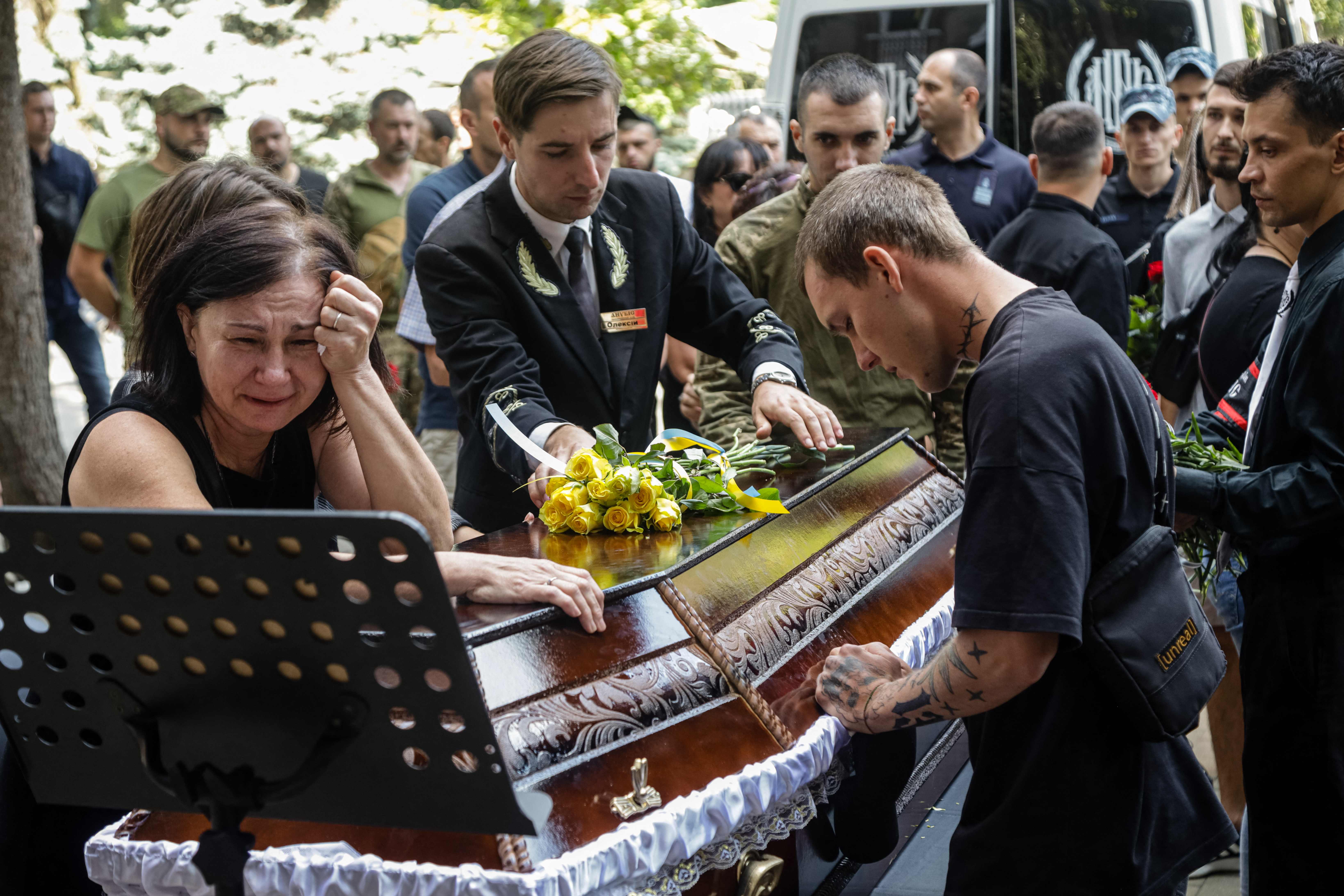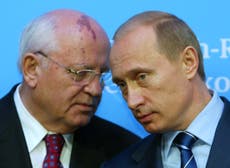The horrific legacy of Russia’s war in Ukraine is missing people who may never be found
One of the most heartbreaking pleas repeated by families I met across the country was for help finding their missing loved ones, writes Bel Trew


The truth is some of the tens of thousands of missing people in Ukraine may never be found. And this is the greatest fear of the families left behind to process the unthinkable.
Early on in Putin’s invasion of Ukraine, one of the most heartbreaking pleas repeated by families I met across the country was for help finding their missing loved ones. Wherever Russian forces and their proxies had been, from Kyiv to Kherson, people had started vanishing into thin air. We got to work trying to track their final movements, pooling any witness testimonies and finding any leads on where they might have gone.
A very small handful of those we were looking for have reappeared, physically and mentally broken – with scraps of information of others who had disappeared and testimonies of potential war crimes.
Others have never been heard from again, but were spotted along their journeys into prisons in occupied territory and Russia by those who have been released. Lost in the network of the missing, we were even able to locate two missing people and inform their families.
But some have just disappeared. And that is perhaps the cruellest fate of all. No information, no paper trail, no string to navigate the Minotaur’s labyrinth, no Hansel and Gretel breadcrumbs – just silence and nothingness.
And that is why this issue needs to be kept alive, and why the international community needs to keep demanding the complete list of prisoners of war, of interned civilians, of the mass graves and their whereabouts. It is why Russia must at the very least respect the Geneva Conventions and give the International Committee of the Red Cross (ICRC) access to all PoWs wherever they are held, to know their names and to be able to inform their families.
This so far, according to the ICRC has not been the case. Over the last few weeks, we have published a video documentary and two text investigations, delving into why people have vanished and where they might have gone.
We first looked at Olenivka prison, in occupied territory – a disused penal colony brought out of retirement in February by Russian proxy soldiers to hold civilians taken around the then besieged and now occupied city of Mariupol. After civilians were made to repair it, it became the main hub for prisoners of war who surrendered once Mariupol fell.
When we first started digging, the name Olenivka was tentative and the new word on the lips of desperate relatives. No one had heard of it until a trickle of people started being released with information about others left behind. They spoke of torture, forced labour, arbitrary detention and enforced disappearances in this mysterious place.
That is until July when Russia said 53 Ukrainian PoWs had been killed there in a massive explosion. And it was suddenly centre stage on the world news spotlight.
We interviewed four former civilian detainees who have been recently released who not only sketched the prison and the horrific conditions inside her but cast doubt on Moscow’s claims that Kyiv had bombed its own PoWs to silence them. Some evidence points to a deliberate and brutal false flag attack.
Next, we delved into the mysterious disappearances of civilians, who we could not track to the prison within occupied Ukraine. We located six of them in Russia and we managed to sketch out three now well-trodden routes where civilians were being taken to prisons in Russia; the northwest via Belarus, the northeast via camps along Ukraine’s border and the south out of Crimea.
Both Russian and Ukrainian officials say that two million Ukrainians have moved to Russia since the start of the war via the controversial process of “filtration”.
Moscow vehemently denies committing crimes in Ukraine, or disappearing people, or arbitrarily detecting civilians. It has presented the movement of people to Russia as determined efforts to save lives during evacuations. Its embassy did not respond to requests from us for comment.
To keep up to speed with all the latest opinions and comment, sign up to our free weekly Voices Dispatches newsletter by clicking here
Indeed, some of the people we spoke went to Russia somewhat voluntarily (they felt they had no better choice). But we also tracked civilians who were taken to far-flung regions of Russia against their will and even knowledge – who effectively disappeared from their families until they were able to get out of the country. That could constitute the war crime of forcible transfer.
Finally, we spoke to those tasked with handling the third category of people: those who have vanished completely. We interviewed family members and rights groups spending day and night trying desperately to find any information about those whose whereabouts are still not known. We interviewed young forensic doctors who have identified hundreds of bodies hastily buried in mass graves, sandpits or parks, corpses found in burned out buildings – or those handed back in prisoner swaps.
All of them had the same miserable message: we don’t know if some of the missing will ever be found, if all of the bodies will ever be identified. And that might be the unspoken unseen legacy of this brutal war, the thousands who one day woke up and vanished.
It is the most horrific fate for their loved ones left behind, and it is our responsibility to shed light on this issue and help find them.






Join our commenting forum
Join thought-provoking conversations, follow other Independent readers and see their replies
Comments